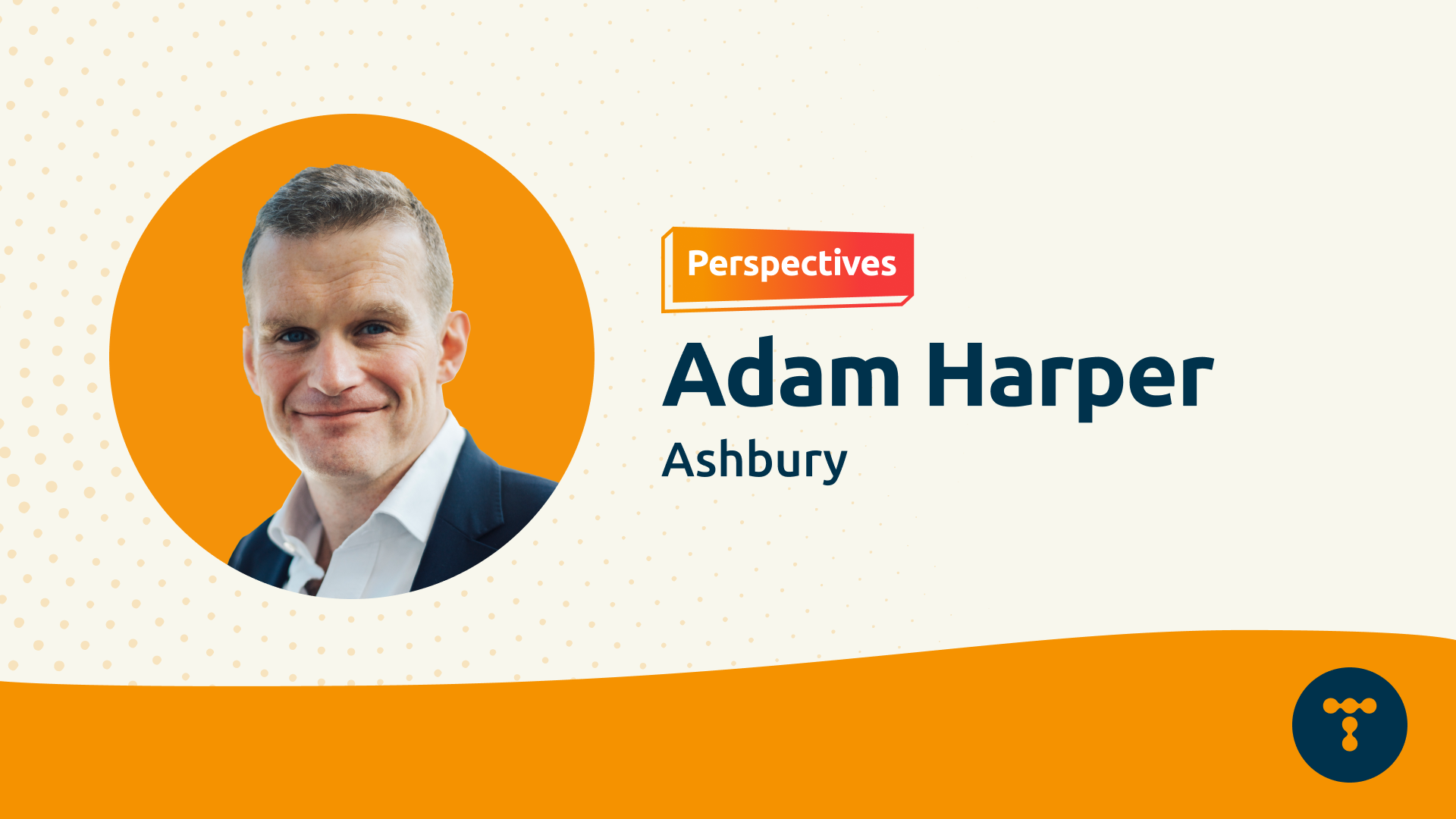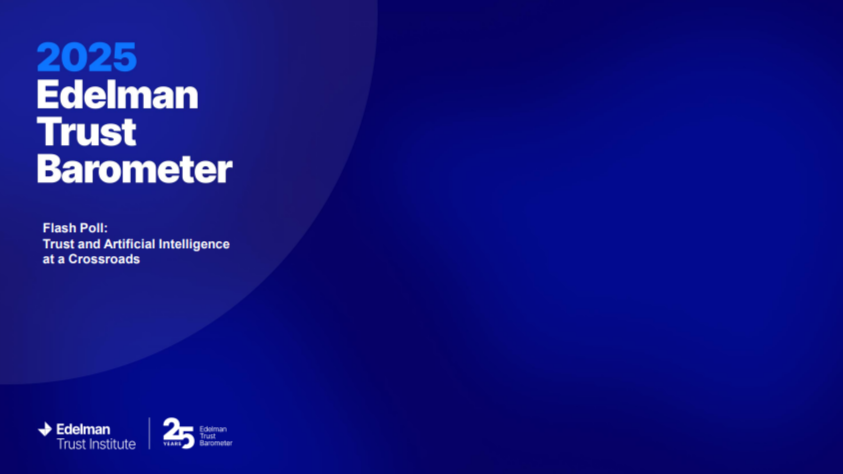'Perspectives' is a Telum Media submitted article series, where diverse viewpoints spark thought-provoking conversations about the role of PR and communications in today's world. This Perspectives piece was submitted by Adam Harper, Founder & Managing Partner at Ashbury.
Tariff-driven market volatility means it’s time for financial communications teams to be more influential than ever. The companies that will achieve the best outcomes during this period will be those that are very proactive in understanding and managing risk, but which don’t freeze and just stop communicating.
Guarding reputation and influence through purpose-led communications
The tariffs are causing serious volatility and uncertainty in markets. My experience through other periods of dislocation is that normally rational people in financial institutions can start to panic because the experience is so far out of the ordinary.
And when they panic, they often start doing things - or wanting to do things - that are logical in a narrow way but are just bad ideas from a reputational perspective.
For example, people on a bank’s trading desk might want to make an optional announcement warning the market that they may not be able to fulfil an obligation to provide prices for a certain structured product because of a lack of underlying liquidity. It makes sense at one level because it appears to protect the bank from a potential criticism that it stopped providing prices without warning. In reality, of course, it’s not a good idea. That announcement would pour more fuel on the flames in a volatile market and should be avoided if at all possible.
Now more than ever, then, reputational risk management is a top priority for comms leaders in the financial sector. A statement or action that could pass by unnoticed at most other times is more likely to explode at a time like this. That means comms leaders have to be more vocal and visible than ever, wielding all the influence they can while keeping a cool head.
And these times are interesting because they force comms leaders to ask important questions, like what should I actually be taking a view on? Is it just my company’s communications strategy, or should I be making an argument to management on what the firm is doing with its clients and products, or how it’s engaging with regulators or investors? Where exactly are the limits of my influence?
My view is that, if you can understand the issue and have a thought-through opinion on it, then your stakeholders need to hear that. There should be no limits to your influence, although you will certainly come up against people from other disciplines with different views and you won’t have everything your own way. Any organisation that isn’t listening to its reputational specialists right now is needlessly increasing its risks.
Navigating stakeholder relations, trust building, and brand reputation
On the risk management side of the equation, comms teams need to be mapping these rapidly evolving risks and ensuring that they are ready to respond quickly when necessary. This is especially true of rumours, which proliferate in times of anxiety and can snowball fast, as we have seen with several digital bank runs in recent years. False rumours need to be met immediately and decisively with clarity and facts now; you can’t just refuse to dignify them with a response, which used to be the received wisdom.
In these uncertain times, though, there is also opportunity to build reputational equity. Audiences are naturally looking to brands they trust for expertise and guidance. That can create a lot of scope to use insight to build up a firm’s reputation and reassure its clients.
So it’s essential to understand what is most relevant to a given audience at this time. If you have good data on that, it’s easier to anticipate reputational risks and to connect with your audiences’ interests. At Ashbury, we’re making increasing use of our partnership with InferenceCloud, which provides AI-driven tools and insights, to ensure that clients’ communications strategies are relevant to their audience’s immediate and long-term interests.
What we’ve been seeing in some of the analysis we have run recently is that audiences are focused on what these changes mean for them in terms of long-term opportunity, as well as shorter-term challenges. For example, InferenceCloud data shows that export diversification to markets other than the US is top of mind for Asian companies and that institutional investors in the Middle East are engaged by discussions on increasing their investments in the US as well as about increasing their exposure to other regions. These kinds of insights can open up a lot of productive engagement opportunities.
Adam Harper is the Founder & Managing Partner at Ashbury, a technology-enabled strategic communications consultancy. Adam set up Ashbury in Hong Kong in 2020 to help financial sector clients and corporates engaging with financial audiences build intelligent reputations. The agency has since expanded to Singapore, Dubai and the UK to continue supporting organisations from global banks to FinTech companies in driving impactful comms in technology and sustainable finance.

Feature
Perspectives: Time to be brave
by Telum Media
27 April 2025 4:00 PM
5 mins read
Telum Media creating connections
Get in touch to learn more
You might also enjoy
Moves
Aaron Tan has joined FleishmanHillard as Auto Practice Lead and Account Director, bringing experience across branding, communications, marketing and digital strategy.
Based in Singapore, he has accumulated more than 15 years of experience, having previously held senior roles at agencies including The Ate Group and W Communications.
31 December 2025 2:49 AM
1 min read
Research
In 2025, artificial intelligence sits at the centre of growing global divides. Across economies and generations, engagement with AI is revealing widening gaps in trust, understanding, and opportunity.
Chinese AI trust landscape
The 2025 Edelman Trust Barometer Flash Poll: Trust and Artificial Intelligence at a Crossroads reveals that respondents in Mainland China demonstrates high trust in AI compared to developed markets, including the US, UK, Brazil and Germany.
87 per cent of Chinese respondents say they trust AI, a figure that increased by 9 per cent between November 2023 and October 2025. This compares with trust levels of 32 per cent in the US, 36 per cent in the UK, and 39 per cent in Germany.
Strong embrace of AI adoption
High trust in AI among Chinese respondents also translates into their everyday use. 60 per cent of Chinese employees use AI weekly or more, while 49 per cent say they embrace its growing use, compared with just 18 per cent who reject it.
Acceptance is particularly strong in sectors shaping future growth. 43 per cent of financial services workers and 55 per cent of technology sector employees report embracing AI in their work, highlighting how quickly the technology is becoming embedded in professional life.
Optimism over fear of disruption
Unlike Western markets, where AI is often framed as a threat, Chinese respondents remain broadly optimistic. At least 67 per cent believe generative AI will help rather than harm society, including in areas such as climate change, work life, mental health, social cohesion, and economic equity.
Fear of economic displacement is notably low. Only 26 per cent worry that people like them will be left behind by AI, the lowest level among all surveyed markets. Even among lower-income respondents, concern rises to just 36 per cent.
A broad ecosystem of trust
Mainland China’s confidence in AI extends across all categories of AI communicators. 87 per cent trust 'people like themselves' to speak truthfully about AI, 88 per cent trust friends and family, and 85 per cent trust coworkers.
Trust in institutions and authority figures is similarly high, including 87 per cent for scientists and AI researchers, 83 per cent for CEOs, and 84 per cent for journalists and technology influencers.
More than 70 per cent of respondents are comfortable with their employer's use of AI - the highest rate amongst countries surveyed, while 60 per cent are comfortable with the media's AI usage.
Trust issues outweigh other barriers
Despite high overall trust, some barriers to AI adoption exist in Mainland China. Among infrequent users, 43 per cent cite trust concerns such as data protection, 28 per cent worry about how data will be protected, and 19 per cent are concerned about how their data will be used. Issues of motivation and access affect 40 per cent, while discomfort with technology is cited by just 15 per cent.
However these barriers are significantly lower than in Western markets, where 55 to 70 per cent of infrequent users identify trust as the main obstacle to AI adoption.
Ultimately, the Edelman Flash Poll highlights a simple point: trust shapes adoption. Mainland China’s high public confidence supports faster and broader use of AI, while lower trust in Western markets aligns with a more cautious pace. These differences underline how public attitudes influence the trajectory of technological change across regions.
30 December 2025 4:34 AM
3 mins read
Moves
Alexa Cheah has joined W Kuala Lumpur as Marketing Communications Manager. In her new role, she manages the hotel’s brand and communications efforts, including media relations, corporate communications and reputation, events, social media, as well as beverage and food marketing, working alongside the Director of Marketing Communications.
Her prior experience includes roles at Grand Hyatt Kuala Lumpur, followed by Hyatt Hotels in Malaysia, where she contributed to brand campaigns, hotel openings, and cross-property initiatives in the cluster marketing team.
29 December 2025 7:17 AM
1 min read


